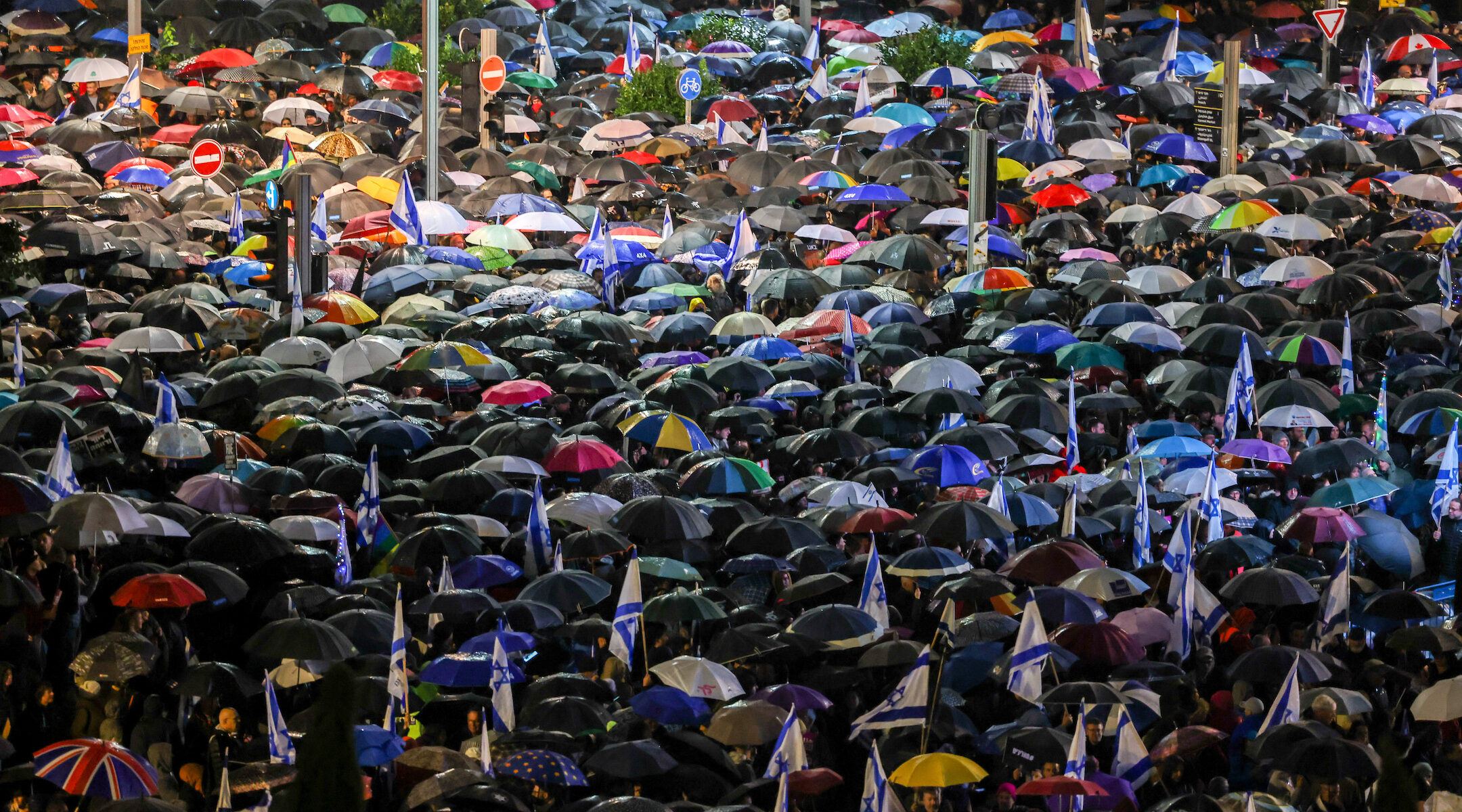(JTA) — Tens of thousands of Israelis gathered in Tel Aviv’s Habima Square on Saturday to protest their new government’s plans to significantly decrease the power of the country’s Supreme Court.
Authorities reported that as many as 80,000 protesters braved a rain storm in Tel Aviv, while smaller protests took place in other cities across the country, including outside of the president’s residence in Jerusalem.
In their first weeks in the Knesset, or parliament, members of Israel’s far-right governing coalition have already advanced pieces of legislation that would allow a majority of lawmakers to override Supreme Court decisions. Supporters say the proposals amount to an overdue check on a Court has drifted leftward over time and struck down too many proposals from the Knesset’s conservative and right-wing flanks. Critics are calling the proposed changes a blow to Israel’s record as a full-fledged democracy.
“I feel like we are living in the beginnings of a dystopian state,” one Tel Aviv resident at the protest told The Times of Israel. “I am seeing the end of democracy and I feel personally threatened.”
Prime Minister Benjamin Netanyahu, who partnered with controversial far-right figures such as National Security Minister Itamar Ben-Gvir to form his ruling coalition, supports the proposed legislation. He has for years been dogged by multiple corruption cases and in 2019 became the first sitting Israeli prime minister to be indicted.
Chief Justice Esther Hayut called the proposed laws “an unbridled attack on the judicial system” this week.
The swelling protest movement that culminated in the rallies has been driven by left-wing activists, according to reports, but centrist figures — including former Defense Minister Benny Gantz, who previously sat in a coalition with Netanyahu — also called for mass protests this week and made appearances on Saturday to show their support.
“If you continue the way you are going, the responsibility for the civil war brewing in Israeli society will be on you,” Gantz said in a televised interview earlier this week.
The rhetoric on both sides intensified as Ben-Gvir ordered police to use water cannons to disperse protesters and banned the display of Palestinian flags at protests, equating them to terrorist symbols. Zvika Fogel, a member of Ben-Gvir’s party, said that Gantz, previous Prime Minister Yair Lapid and two other centrist opposition leaders “should be arrested and put in handcuffs” for encouraging the protests.
JTA has documented Jewish history in real-time for over a century. Keep our journalism strong by joining us in supporting independent, award-winning reporting.






